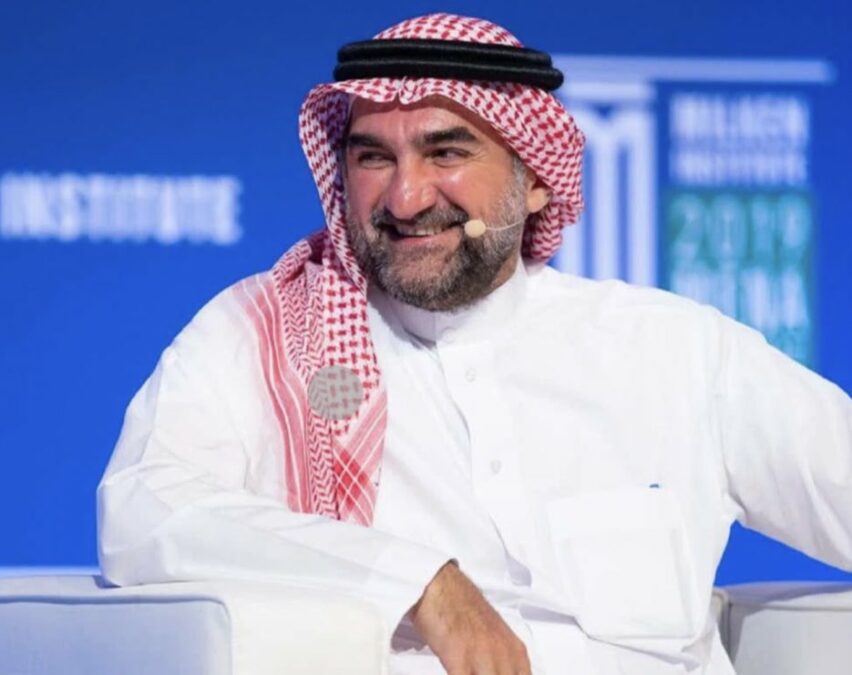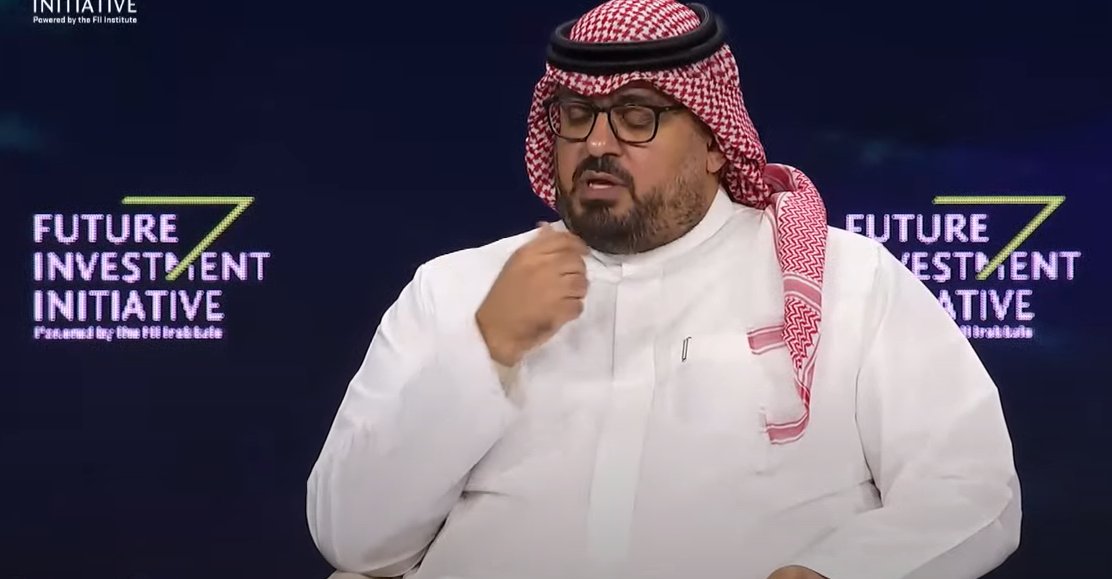Riyadh, Saudi Arabia — Saudi Arabia’s Minister of Economy and Planning, Faisal F Alibrahim said Tuesday the Kingdom saw a remarkable 135 percent growth in exports and services in the second quarter of this year compared to Q2 last year, with tourism playing a significant role.
Speaking at the seventh Future Investment Initiative forum in Riyadh, Alibrahim said Saudi Arabia is seeing a diverse range of sectors fueling non-oil activity growth.
He said the Kingdom provided one of the most investment-friendly environments in the form of cost-effective and clean energy, legislations and manpower.
The forum started today in Riyadh under the theme “The New Compass”. Held at the King Abdulaziz International Center for Conferences, the three-day event brings together 6,000 participants from more than 90 countries, and 500 local and international speakers from different sectors.
#FII7#WorldBank President Ajay Banga at the 7th #FII summit warns: Recent #conflicts could severely impact the global #economy. @FIIKSA @WorldBank pic.twitter.com/2FsTS33L3Y
— TRENDS (@mena_trends) October 24, 2023
FII Institute CEO Richard Attias, speaking at the opening of the conference, said that the future of human values is a topic of profound importance, especially as the world stands at the threshold of a new era.
“The world is evolving at an unprecedented pace, and the same values that have guided our societies for centuries,” Attias said, adding that the challenges mankind faces in regard to climate change, global health crises, and conflicts require a collective spirit of compassion to find solutions that work for everyone.
Moreover, he said that we must work today at an accelerated pace on emerging technologies, such as artificial intelligence and genetic engineering, and needs to establish strong ethical frameworks that protect human rights, privacy and dignity, ensure transparency and harness technology for its benefit.
‘Circumstances reinforce FII7 theme’
Governor of the Public Investment Fund (PIF) and Chairman of FII Institute Yasir Al-Rumayyan said that the circumstances reinforce the importance of the FII theme this year, the New Compass, which is a new interactive program that helps develop new strategies to understand the challenges faced today.
Stressing that “the future needs the hope of humanity”, Al-Rumayyan said that the previous FII events focused on the needs and hopes of individuals in various demographic variations, while this year’s conference tackles the future of investment and humanity’s top priorities.

He also talked about the circumstances the world is experiencing and the efforts made to stimulate investment and economies, to create a stable and sustainable global system.
“As central banks have tightened monitoring policies to slow inflation, businesses and governments around the world have been adjusting to this new reality,” Al-Rumayyan said.
“Governments and the private sector cannot sustain the same level of spending, lending and investments as they did in the past,” he said, and emphasized the importance of focusing on innovation and technology to accelerate change.
#FII7
— TRENDS (@mena_trends) October 24, 2023
Rakan Tarabzoni, COO of the #FIIInstitute, reveals the top priorities at the 7th #FII summit:
1️⃣ Cost of living & quality of life
2️⃣ Social inclusion
3️⃣ Climate change
🌍 A clear call to action for global leaders! #FutureInvestmentInitiative @FIIKSA pic.twitter.com/iTyNNe3rxU
He underscored the great technological advancement witnessed in a short time, including one of the most significant driving forces in the world, artificial intelligence (AI), “which may increase global GDP by 14% in 2030 and has the power to create a more inclusive society and a sustainable model of development”.
Al-Rumayyan said that the advancement in AI will shape global trade in multiple ways, adding that around 70% of companies are predicted to adopt at least one type of AI technology by 2030.
‘AI is energy guzzler’
“Many of us will soon benefit from generative AI in our daily lives, if not already. However, as business leaders, we must be practical. With the rise of AI comes the rise in energy consumption. The computing power required for AI and machine learning is massive and increasing. For example, the daily energy consumption to support running ChatGPT is estimated at 564 megawatts per hour, which is equivalent to the amount of energy consumed by more than 26,000 American homes in a year,” he said.
#FII7
— TRENDS (@mena_trends) October 24, 2023
Rakan Tarabzoni, COO of the #FIIInstitute, reveals the top priorities at the 7th #FII summit:
1️⃣ Cost of living & quality of life
2️⃣ Social inclusion
3️⃣ Climate change
🌍 A clear call to action for global leaders! #FutureInvestmentInitiative @FIIKSA pic.twitter.com/iTyNNe3rxU
Al-Rumayyan touched on the benefits of generative AI and its role in enabling the energy transition with resources like Archie Initiative, supported by Aramco, and on the development of synthetic e-fuels demonstration plants by Aramco and NEOM, which will contribute to reducing engine emissions by more than 70% compared to the conventional fuel.
He hailed the Kingdom’s leading role in developing solutions to emissions, the world’s biggest challenge, praising the strength of the Saudi economy, which witnessed an 8.7 percent GDP growth in 2022, the highest among the G20 countries.
He said that PIF is witnessing a new era of economic growth and economic opportunities, in line with Saudi Vision 2030, as it focuses on 13 sectors to diversify the economy and provide new opportunities.
According to Al-Rumayyan, PIF has 90 new companies in its portfolio and has created more than 560,000 new jobs, with the aim of making a positive impact both locally and globally.








